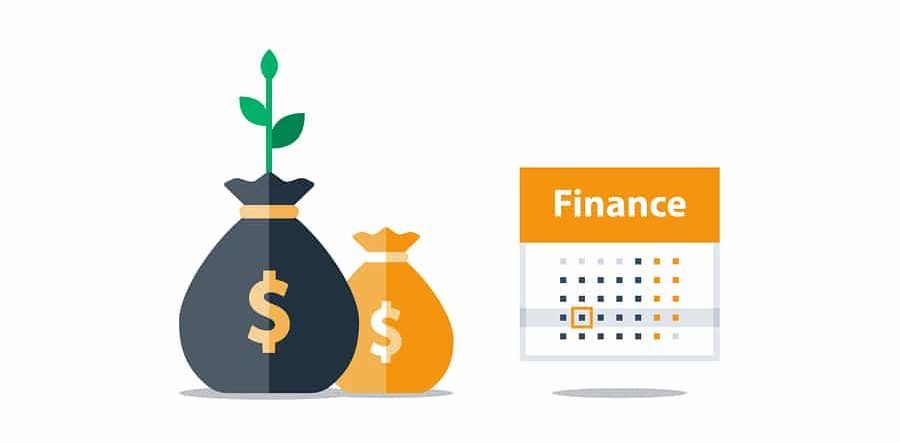If there is one date – one financial deadline – nearly everyone knows, it is April 15th. Through November of last year, the IRS had processed over 150 million returns for 2016, meaning that the majority of U.S. adults filed a return. But for many people, that’s the only financial date on their calendar. That’s unfortunate because in my experience, people that build a financial calendar around specific tasks and then stick to that financial calendar end up in better financial shape and experience less stress than those who do not.

Financial advisor calendar
What those tasks are and when you should get them done will depend on your specific situation. Still, there are some common things that are nearly universally useful for those of us that aren’t retired, and when you should do them and what they are as follows:
December
Build your budget for the coming year – take a look at your spending for the current year, and assuming the amount you’re spending is tenable, use that as a baseline for next year’s budget. Waiting until the end of the year is particularly useful as it allows you to use data from a broad timeframe and to capture spending around the holidays. Reviewing the data will enable you to identify areas you might need to cut back and those that may have been underfunded. You can also build in the financial impact of any changes you anticipate, whether it is paying off debt, getting a raise, buying a car or something else.
Estimate your tax liability for the year – estimating your tax liability for the year in December has a couple of advantages. First, if you have to write the IRS or your state a check when you file, it won’t come as a surprise, and you have time to set aside some of the amount you’ll owe. Second, there may be things you can do before the end of the year to reduce your liability, like making a charitable contribution or an extra payment on your mortgage. Lastly, unless your income varies a good bit and is unpredictable, determining what you’ll owe in taxes this year should give you a pretty good idea of where you’ll stand in the coming year.
January
Update your balance sheet – while this isn’t strictly necessary, I find it to be a great motivator. On January 1st, I update a list of assets and liabilities and in most years, assets increase while liabilities decrease. I have done this for over ten years now, and the financial progress we’ve made is there to see in black and white.
Make necessary changes to withholding and retirement plan contributions – if you were able to come up with a tax estimate for the year and you expect your income to be steady, you should be able to set up your withholding and retirement plan contributions at this point. Setting these early helps avoid any painful adjustments down the road.
March
Make retirement plan contributions (business owners) – if you are a business owner, you can make employer contributions to certain types of plans as long as you do so before you file your business return. The deadline for business returns is March 15th, unless an extension is filed.
April
Make retirement account contributions – contributions to SEPs, traditional IRAs and Roths must be made by April 15th (if you file earlier, contribute to the traditional IRA and SEP before you file).
Summer
Update your plan and your portfolio – update your long-term financial plan over the summer. Make sure you are still on track and review your insurance coverage to make sure you’re adequately but not over-insured. Lastly, if you haven’t reviewed your portfolio during the year, do so now and make sure your investments are still in line with your financial plan.
Fall
Review options in open enrollment – if you work for a larger employer, chances are they’ll have an open enrollment period in the fall. If there have been changes to benefits, review them to see if those changes might lead to different benefit choices for you. Lastly, if you did identify gaps in your insurance coverage during your plan review in the summer, your employer might offer coverage to fill those gaps, so be sure to check.
Weekly
Balance the books, fund spending – on a weekly basis, I balance the books and fund any weekly budget needs like groceries, restaurants or gas. If you use a budget, you could do this on a monthly basis, but I find that doing it weekly means I take less time overall given that I’m dealing with fewer transactions at a time.
Monthly
Fund the monthly budget items – following the You Need a Budget system, I fund monthly items (e.g. mortgage, school tuition, reserves) at the end of every month for the following month. For more on our experience with budgeting, check out this post.
The financial calendar above is just a partial list of items, and both your calendar and to-dos will differ given your specific situation. Nevertheless, many of the things I’ve outlined will likely apply to you, so you can use them as a starting point in building your own financial calendar.



